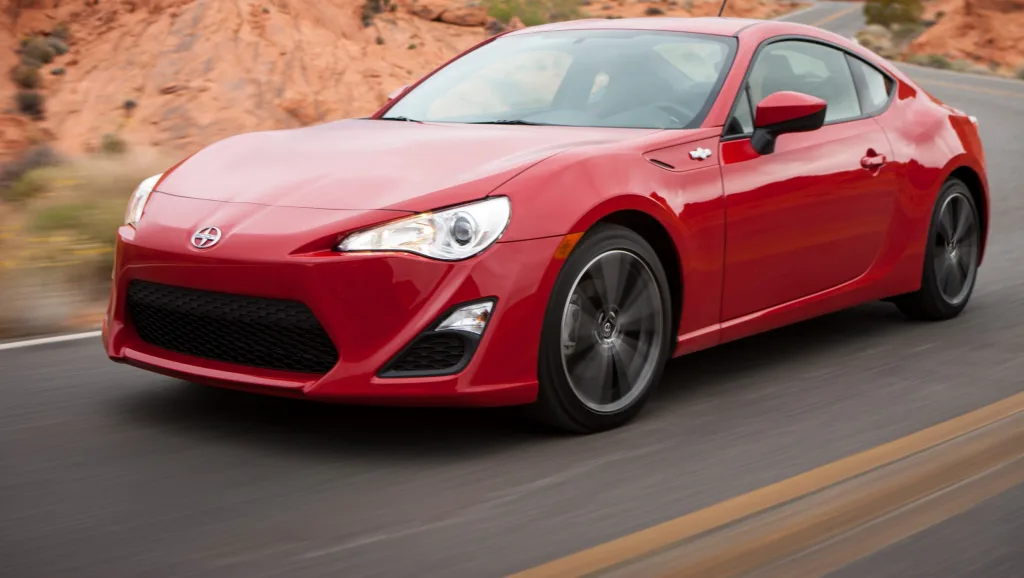Scion, the now-discontinued brand of vehicles, was owned by Toyota Motor Corporation. Founded in 2002, Scion was a subsidiary of Toyota, created with the intention of targeting younger buyers from the ‘Generation Y’ demographic.
Toyota’s strategy with Scion was to offer affordable vehicles that could be easily customized and personalized. By pricing the cars low and providing a wide range of accessories, Scion aimed to appeal to young, budget-conscious customers who were looking for a unique and customizable driving experience.
Initially, Scion was successful in attracting its target audience. The brand gained popularity among younger buyers, with the average age of a Scion buyer being the lowest in the industry at 39 years old as of February 2007. However, over time, Scion seemed to lose its appeal to its intended demographic.
Interestingly, many of the youthful customers that Scion initially wanted to attract were perfectly content with purchasing existing Toyota vehicles. This led to a shift in strategy for the parent company, Toyota.
In 2016, Toyota made the decision to discontinue the Scion brand. Rather than maintaining Scion as a separate entity, Toyota integrated Scion’s cars into its main lineup. This move made more sense as it allowed Toyota to leverage its existing brand recognition and reach a wider range of customers.
For current owners or potential buyers of previously owned Scion vehicles, it is important to note that Toyota continues to provide support and service for these vehicles. As a Scion owner, you can rest assured that any maintenance or service needs will be handled by factory-trained technicians using genuine Toyota parts.
Scion was owned by Toyota Motor Corporation. The brand was created with the intention of appealing to younger buyers, but over time, it lost its target audience and was discontinued in 2016. However, Toyota continues to provide support and service for Scion vehicles, ensuring that owners have access to reliable maintenance and repairs.
Why Did Toyota Stop Making Scions?
Toyota stopped making Scion because the brand failed to attract its target audience, which were youthful customers. These customers were actually content with purchasing existing Toyota vehicles instead of opting for Scion cars. As a result, Toyota made the strategic decision to integrate Scion’s cars into its main lineup, as it made more sense to market and sell them under the Toyota brand. This integration allowed Toyota to streamline its offerings and eliminate the need for a separate brand that was not resonating with its intended audience. Consequently, the Scion brand was officially discontinued in 2016.

Who Does Scion Belong To?
Scion is a brand of vehicles that is owned by Toyota Motor Corporation. Toyota established Scion in 2002 with the intention of targeting younger buyers from the “Generation Y” demographic. The primary objective was to attract this specific consumer group by offering affordable vehicles that could be easily customized and personalized to suit their preferences. By pricing Scion vehicles competitively and providing a wide range of accessories and customization options, Toyota aimed to appeal to the younger generation. As of February 2007, the average age of a Scion buyer was reported to be 39, which was the lowest average age among car buyers in the industry at that time.
Does Toyota Still Support Scion?
Yes, Toyota continues to support Scion vehicles, both for current owners and those considering purchasing a previously owned Scion. Toyota provides comprehensive service and maintenance for Scion vehicles, ensuring that they are always taken care of.
Here are some key points about Toyota’s support for Scion:
1. Service: Toyota offers service and repairs for Scion vehicles through its authorized dealerships. These dealerships have factory-trained technicians who specialize in working with Scion vehicles. This ensures that your Scion receives the highest quality service and maintenance.
2. Genuine Parts: When servicing a Scion, Toyota uses genuine Scion parts. These parts are specifically designed and manufactured for Scion vehicles, ensuring the best fit and performance. By using genuine parts, Toyota maintains the integrity and reliability of your Scion.
3. Warranty Coverage: Toyota’s warranty coverage extends to Scion vehicles. This means that if your Scion is still within its warranty period, Toyota will cover the cost of repairs for any issues covered under the warranty. It provides peace of mind for Scion owners, knowing that they have the backing of Toyota’s warranty.
4. Expertise: As the parent company of Scion, Toyota has extensive knowledge and expertise in the design and manufacturing of Scion vehicles. This expertise is utilized in providing support and service for Scion owners. Toyota’s technicians are well-trained in working with Scion vehicles and are equipped with the necessary tools and resources to address any issues that may arise.
In summary, Toyota continues to provide support for Scion vehicles, offering service, maintenance, genuine parts, warranty coverage, and expertise. With Toyota’s backing, Scion owners can have confidence in the ongoing care and support of their vehicles.
Conclusion
Scion was a brand owned by Toyota Motor Corporation. It was established in 2002 with the aim of attracting younger buyers, known as ‘Generation Y’. However, over time, Scion struggled to capture its target audience, as many young customers were content with purchasing existing Toyota vehicles. Recognizing this shift in consumer preferences, Toyota made the decision to integrate Scion’s cars into its main lineup. As a result, the Scion brand was officially discontinued in 2016. Despite this, current and prospective Scion owners can take comfort in knowing that Toyota, the parent company, will continue to provide support and service for their vehicles. Whether it’s routine maintenance or repairs, all work is performed by factory-trained technicians using genuine Toyota parts, ensuring the reliability and longevity of Scion vehicles.
